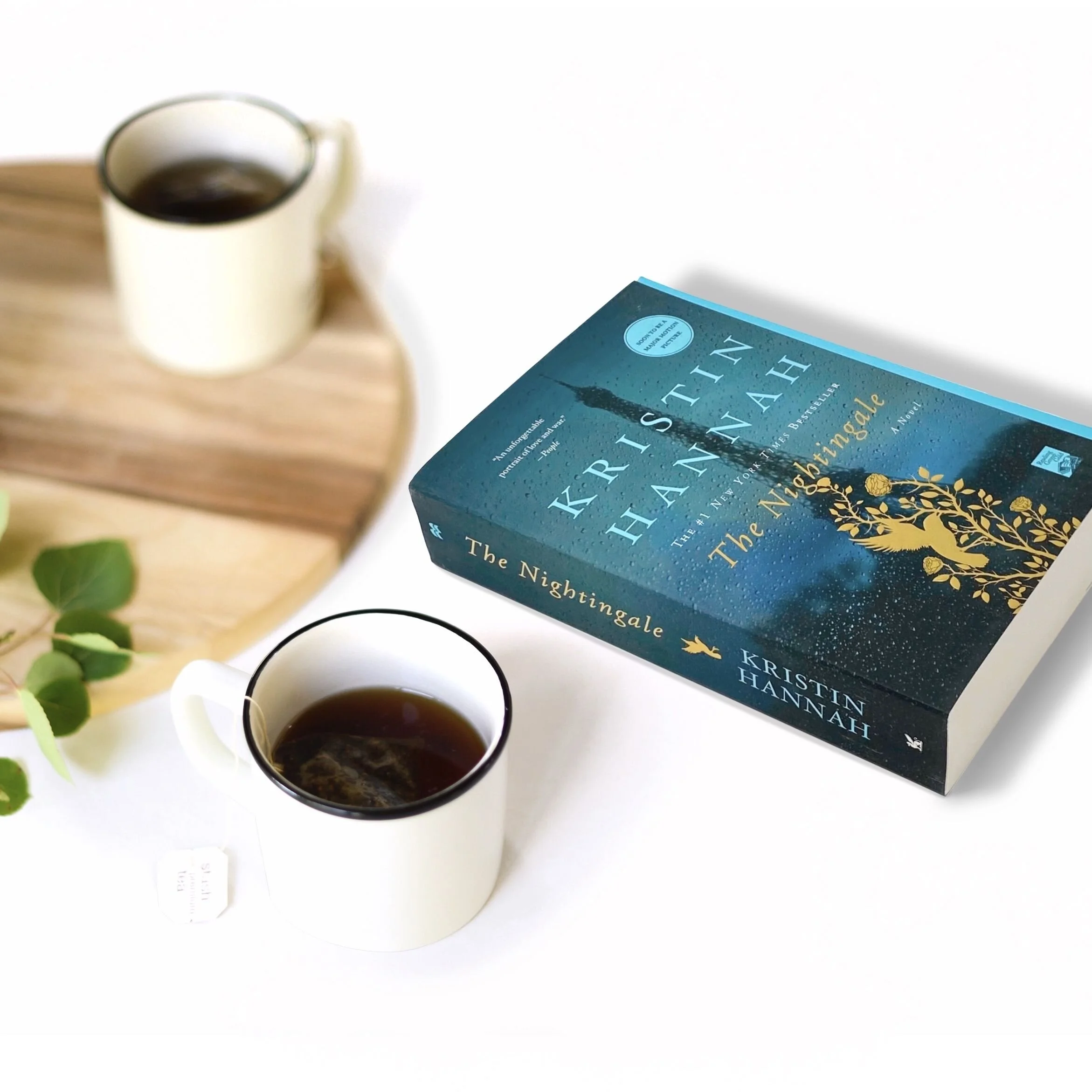Guest Review: The Nightingale
Joyce Sanders is the owner of Soldier and Scholar Bookstore in Castlemaine, Victoria. She is also a historian, and author. You can find her first novel, The Old Woman Who Hated Rupert Murdoch, here.
Because I am approaching this novel a few years after many readers have loved it, and a few hated it, it lets me look at their reactions to it as I develop my own, and consider what has been left out.
What most excited me was the setting in France during the occupation. This is a setting quite common for the French of course, but for us English speakers, our most common look at the struggles of women and children left behind reflects what was happening in the United Kingdom: the rationing, the Land Army, the factory work, etc. We forget how very different the war was for the French, and it is not that often we get a well-formed picture of it, as Kristin Hannah has provided.
Both sides of the Channel were struggling to produce food to stay alive, but the difference is that what little the French produced was taken from them to support the German Army and the civilians in Germany. It was common to have to billet German soldiers and have to feed them, and if you were unlucky as a woman, you might have to provide other services as well. The Germans might strip your home of anything of value or anything of use down to your blankets and firewood.
Then there is the constant fear that you might say or do the wrong thing and thus lose your job and income, as the main character does. Add to that the horror of losing your Jewish neighbours, having to decide if you can protect anyone when that might endanger your own family. These are decisions the British were not having to make in the novels that we most commonly read about this period.
Knowing I owned a copy of Simone de Beauvoir’s book of this occupation period, “The Prime of Life”, I wanted to go back and read that to compare the two experiences. The theme of The Nightingale is played out in the lives of the two sisters: Do you take action in a time of crisis, or do you concentrate on your own survival and that of your family? Funnily enough, Simone de Beauvoir is having the same moral crisis: Sartre returns to her after escaping from a German camp and determines to enter resistance activities, while Simone initially thinks, “I could think of nothing better to do than live, survive, and hope for better days.” She watches her Jewish friends being taken away, but at the time no one knows what tragic ending awaits them. Both books describe the process of slow starvation very accurately, trying to make a meal out of anything remotely edible. Hannah adds to that starvation by her character having to watch the Germans throwing away food after she feeds them.
Some readers of the Nightingale seem to dislike the unusual personal relationships, labeling this sentimental melodrama. I’m aware that a lot of readers will abandon a novel or consider it lacking in seriousness if characters venture a kiss, or heaven forbid, have sex. But close relationships of all kinds are part of life. Simone de Beauvoir might only venture that she and Sartre shared a hotel room when caught out after the curfew siren goes. But a bit more description is not a crime. I thought Hannah’s subtle description of the confused attraction of her main character to the German soldier she has billeted is written beautifully. Then there is the well-described difficulty of trying to become close again to her husband after the war. De Beauvoir describes a similar difficulty when Sartre returns to her after having experiences in prison that she can’t even imagine.
I learned so much from Kristin Hannah’s story that I had never read in all my studies of WWII: the step by step disappearance of the French Jewish community, the saving of Jewish children, the rescue of Allied pilots, the way the German soldiers operated in the small French towns, but most of all the awful life of slowly starving and freezing to death certainly struck a chord with me! There are times when fiction can offer you more than fact. Sometimes you need the emotion that comes with the former to really jog your memory and understanding. De Beauvoir’s account is partly an actual diary of the period, but it was Kristin Hannah’s account that made me shed tears at the end, and if we understand how memory works, “The Nightingale” will probably stay with me much longer than “The Prime of Life.”






